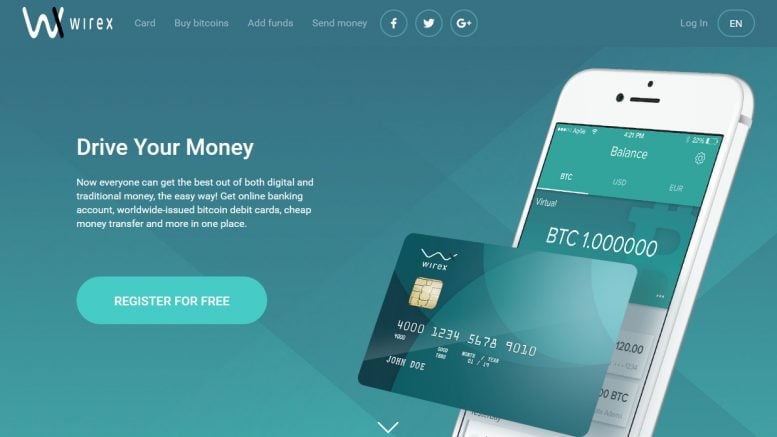
Mass, mainstream adoption of cryptocurrencies might take a route few original cadres of developers and enthusiasts imagined — major payment processing, plastic debit cards. They’re incredibly handy for those wishing to use crypto while merchant adoption works itself out. Here are five such cards to consider: Wirex, Bitpay, Cryptopay, Xapo, and Shift.
Also read: World Cup Goes Crypto!
5 Crypto Debit Cards Worth Checking Out
Significant strains of the broader crypto community (strident veterans of an ideological bent) chafe at cryptocurrency debit cards. They do in large part because such cards are in bed with sworn enemies, legacy banking: Visa, Mastercard. Indeed, it is the height of irony the very institutions crypto was designed to thwart are arguably crypto’s most popular onboarding forms.

Wirex: A well known company, Wirex has a solid customer base. Along with virtual products, it offers a pin card. It also is notorious for fees, and they add up. And while no company is ever guaranteed to stay solvent, something to consider is shelf life (they tend to come and go). Wirex seems well poised for the longer term: Spring of last year it received confidence funding in the low millions from SBI Group, a prominent Japanese financial player. It has nearly one million customers spread out through most countries, with about a billion dollars in transaction volume last year. This year they’ve added litecoin, and they basically pioneered contactless debit cards in the space. The regular fees are pretty similar to other cards, hovering around 3% for international transactions, $2.50 for withdrawals, $17 to purchase a physical card.
For most everyone else, crypto’s slow merchant adoption is a giant pain in the ass. No matter how much one loves crypto and its potential, people need food, clothing, tchotkes. And, no, the fact your brother has a hat store, or the fact that random pizza parlor down the street accepts crypto, are not immediate solutions. A person can only have so many hats and eat so much of your brother’s greasy pizza.

Bitpay: Another well regarded provider is Bitpay. Its card is accepted the globe over, though it’s only available to US residents. No chip and pin, so verification is needed. Simple KYC, AML identification is mando, so all one needs is a government issued ID, street address, and Social Security number. The card is available in all US states. It’s loaded through a separate wallet client, prepaid. They use Visa, and for around 10 bucks USD a physical card will be sent along. Outside the US, a 3% fee is placed on all currency conversions (along with $3 for any outside the US withdrawals). Withdrawals in the US vary from bank to bank in terms of fees. Using it is a snap, very convenient. Withdrawal limits are generous.
Crypto debit cards, then, are a splitting the baby, kissing your sister kind of way to advance money’s future while still being able to enjoy life’s material pleasures. Done right, crypto debit schemes go anywhere major payment providers, such as Visa and Mastercard, are accepted. At the very least, they’re a nice hedge.

Cryptopay: Like Wirex, they offer virtual and physical cards. It is available around the globe. It can also be a little fee laden with load fees and maintenance fees, etc. It’s, of course, a Bitcoin debit card. Its selling feature is lack of personal verification. They might require more if limits are increased, however, above a couple thousand dollars. The card is right around $15, withdrawals are $2.5, and they charge 3% on international transactions.
Scouring the known crypto debit world, those presented are by no means exhaustive. Such cards are designed to help anyone inclined to get started. There are many others, as the market sees them popping up all the time. If these don’t live up to your standards, there are, again, plenty others.
Xapo: Xapo is most everywhere, and has a solid reputation among enthusiasts. It too was an earlier mover in the space. No chip and pin standard, though it’s offered. The cost of the card is roughly $20, and it carries an annual fee. Like most other cards, so long as users stay under about $2,500 in withdrawal limits, fees are relatively tame.

Shift: Easily connects to your Coinbase account, relatively low fees. Available only in 45 states around the US, Coinbase is limited to certain countries as well. Shift position themselves as “the first US Bitcoin debit card”. The card costs a reasonable $10 to produce and has no ongoing fees. There is of course the standard 3% international transaction fee and $2.5 flat ATM withdrawal fee.
Disclaimer: Bitcoin.com does not endorse nor support these products/services. Readers should do their own due diligence before taking any actions related to the mentioned company or any of its affiliates or services. Bitcoin.com is not responsible, directly or indirectly, for any damage or loss caused or alleged to be caused by or in connection with the use of or reliance on any content, goods or services mentioned in this article.
What bitcoin debit card do you use? Let us know in the comments section below.
Images via Pixabay.
Be sure to check out the podcast, Blockchain 2025; latest episode here. Want to create your own secure cold storage paper wallet? Check our tools section.
The post Bitcoin (Almost) Everywhere: 5 Crypto Debit Cards Worth Checking Out appeared first on Bitcoin News.
via C. Edward Kelso

0 comments:
Post a Comment